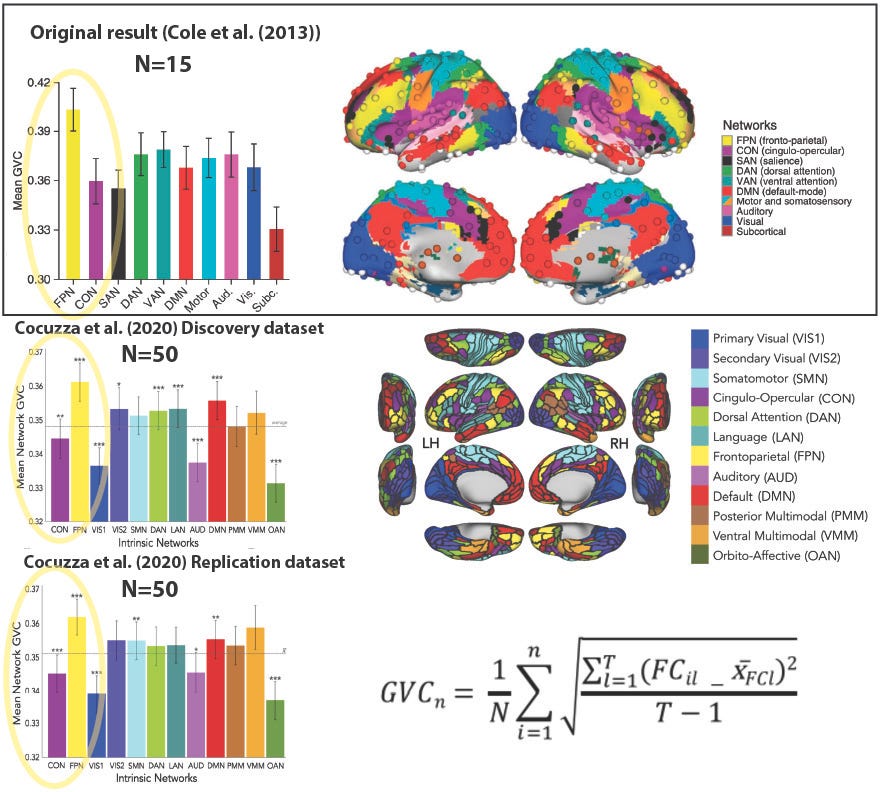Imagine a world where the results of a study about the impact of poverty on education were entirely dependent on the researcher’s personal beliefs. Not only would this lead to wildly divergent conclusions, but it would also erode public trust in academic research. This is where replication in sociology comes in. It’s a fundamental pillar of the scientific method that seeks to ensure the reliability and validity of research findings.

Image: www.sciencefriday.com
Replication, in simple terms, is the process of repeating a study to see if the same results are obtained. It allows researchers to verify the findings of previous studies, identify potential biases, and strengthen the overall body of knowledge. While often overlooked, replication is critical for advancing our understanding of social phenomenon, promoting scientific rigor, and building trust in social science research.
The Importance of Replication in Sociology
Sociology, like any scientific discipline, relies on empirical evidence to study human behavior and social structures. Replication serves as a vital safeguard against the pitfalls of subjective bias and methodological error. When a study is replicated, researchers are essentially testing the robustness of the original findings, ensuring that they are not due to chance or specific circumstances. This process helps to differentiate reliable findings from spurious ones, contributing to a more accurate understanding of the social world.
Beyond simply verifying results, replication can also lead to valuable new insights. Researchers may find variations in results across different contexts or populations, prompting further investigation and a more nuanced understanding of the phenomenon in question. The act of replication forces researchers to scrutinize their methods, leading to improvements in research design and data collection techniques. This iterative process continually refines the scientific process, yielding more robust and reliable results.
Types of Replication
Exact Replication
As the name suggests, exact replication aims to reproduce the original study as closely as possible. This includes using the same sampling methods, data collection instruments, and analysis procedures. Exact replication is particularly useful for identifying potential errors in the original study or for examining how findings might vary across different populations or time periods.

Image: pscientific.substack.com
Conceptual Replication
Conceptual replication, on the other hand, focuses on testing the core theoretical hypotheses of the original study, while employing a different research design or methodology. This allows researchers to explore the generalizability of the findings to different contexts and populations while remaining faithful to the underlying theoretical framework.
Systematic Replication
Systematic replication involves replicating a study multiple times, potentially with variations in the research design. This approach helps to assess the consistency of the findings and determine their sensitivity to different methodological choices. For example, a researcher might replicate a study using different data sources or sampling frames to see how the results might change.
Obstacles and Challenges in Replication
While replication is a cornerstone of scientific progress, it often faces significant hurdles. One major obstacle is the lack of incentive for researchers to replicate existing studies. Academic rewards typically favor original research, leading to a bias against replicating past studies, even if they are fundamental to building a more robust body of knowledge.
Another challenge is the issue of “publication bias.” Studies with statistically significant results are more likely to be published, while those with null or inconclusive findings may not see the light of day. This bias can distort the overall research landscape, leading to an overestimation of the reliability of some findings. Moreover, the complexity of replicating social science research, which often involves intricate data collection and analysis methods, can act as a barrier for researchers.
The Future of Replication in Sociology
In recent years, there has been a growing recognition of the importance of replication in social science research. Calls for increased transparency and open science practices are encouraging researchers to share their data and analysis methods more openly, facilitating replication by other scholars. Moreover, initiatives such as the “Reproducibility Project” and the “Open Science Framework” are providing tools and resources for researchers to conduct and share replication studies.
As technology continues to evolve, the development of innovative statistical methods and data analysis techniques will further enhance our ability to replicate sociological research. For example, advanced data mining tools can help researchers identify and address potential sources of bias in large datasets, contributing to more accurate and reliable results.
Tips for Conducting Replication Studies
You don’t need to be a seasoned researcher to appreciate the value of replication. As an informed citizen and consumer of sociological research, you can leverage replication to make better-informed decisions. Here are some tips for evaluating the replicability of a study:
- Look for studies that have already been replicated: When reading a research article, pay attention to whether the findings have been replicated by other researchers. This provides valuable evidence on the robustness and generalizability of the original results.
- Examine the methods section: Understand the methods used in the original study, including the sampling strategy, data collection instruments, and analysis techniques. This information provides clues about the potential for replicating the findings.
- Consider the context: Be aware of the specific context in which the original study was conducted. Consider whether the findings are likely to be generalizable to other populations or time periods.
FAQ
1. What is the purpose of replicating a study?
The purpose of replicating a study is to verify the original findings, identify potential biases, and strengthen the overall body of knowledge. Replication helps build trust in research by ensuring that the results are not due to chance or specific circumstances.
2. Why is replication important in sociology?
Replication is crucial in sociology because it allows researchers to test the robustness of their findings and ensure that they are not overly influenced by personal biases or methodological errors. It helps to distinguish reliable findings from spurious ones, contributing to a more accurate understanding of social phenomena.
3. What are the different types of replication?
There are three main types of replication: exact replication, conceptual replication, and systematic replication. Exact replication attempts to reproduce the original study as closely as possible, while conceptual replication tests the core theoretical hypotheses using a different research design. Systematic replication involves replicating a study multiple times, potentially with variations in the design, to assess the consistency of the findings.
4. What are some challenges to replication in sociology?
Some of the challenges to replication in sociology include: lack of incentive for researchers to replicate studies, publication bias, and the complexity of replicating social science research with intricate data collection and analysis methods.
5. What are some tips for evaluating the replicability of a study?
Look for studies that have already been replicated, examine the methods section to understand the research design, and consider the specific context of the original study. Be mindful of the potential for bias and methodological limitations.
Replication Sociology
Conclusion
Replication is a fundamental principle in the scientific method, and it plays a crucial role in building a more robust body of knowledge in sociology. By verifying findings, identifying potential biases, and promoting transparency, replication helps to ensure the reliability and validity of research. As technology advances and open science practices become more widespread, we can anticipate a flourishing of replication studies in the years to come. This will ultimately contribute to a deeper understanding of the social world and promote greater trust in social science research.
Are you interested in learning more about the role of replication in science? Share your thoughts and questions in the comments below!



/GettyImages-173599369-58ad68f83df78c345b829dfc.jpg?w=740&resize=740,414&ssl=1)


